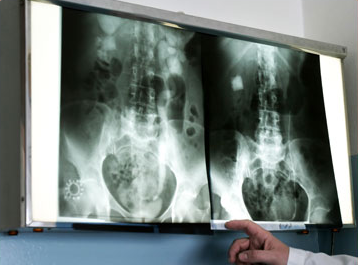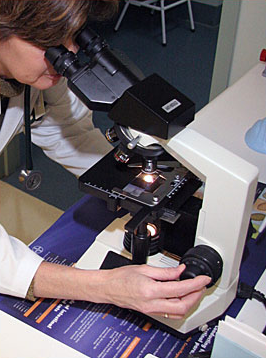Diagnostic Services for Your Pet
Veterinary X-Rays
Though radiographs may seem like a technology from the 20th Century, they are in fact an important and cost-effective veterinary diagnostic tool. Radiographs—also known as X-rays—are extremely helpful at identifying and diagnosing a number of medical conditions affecting your pet's lungs, heart, abdomen, oral cavity, bladder, kidneys and other areas. For example, a radiograph can detect cancerous tumors, diagnose heartworm disease, bladder and kidney stones, and foreign objects.
X-rays are also very important for helping diagnose and treat injuries such as broken bones, joint injuries and illnesses and many other orthopedic conditions.
Our Diagnostic Lab
 Performing preventative medicine as well as diagnosing emerging internal health issues requires the ability to perform a wide range of laboratory tests on blood, urine, feces, and biopsied tissue. Without timely access to precise laboratory test results it is difficult to make an accurate diagnosis or assessment of your pet's health.
Performing preventative medicine as well as diagnosing emerging internal health issues requires the ability to perform a wide range of laboratory tests on blood, urine, feces, and biopsied tissue. Without timely access to precise laboratory test results it is difficult to make an accurate diagnosis or assessment of your pet's health.
For example, diagnostic testing can detect heartworm disease, Lyme disease, infections, feline leukemia, intestinal parasites, urinary tract infections, and many additional diseases and conditions that can go unnoticed in their early stages. Early blood testing can show evidence of disease such as diabetes, changes in liver or kidney function, or simply provide a baseline for future reference. Diagnostic testing is also included in pre-anesthetic screenings prior to dental or surgical procedures that require general anesthesia.
Fredericktown Animal Hospital has an in-house laboratory. In many cases, our sophisticated instruments and diagnostic capabilities allow us to receive results within minutes.
